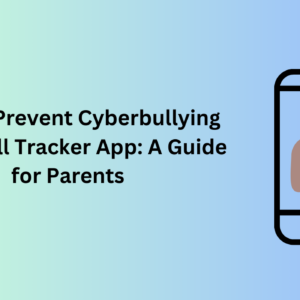
Today’s phone scams are smarter than ever. They often use AI-generated sounds and fake caller IDs that are easy for kids to fall for. Scammers use voices that sound like people you know to try to be a parent, teacher, or friend. Some even send texts like “Mom, I lost my phone” or “I need money right now” to make people feel panicked and in a hurry.
It’s no longer clear that these calls are fake; they sound terribly real. As technology gets better, so should parental control. Parents can effectively protect their kids from emotional manipulation and digital threats by understanding how call trackers work to prevent scams.
What Are Phone Scams and Why They’re Getting Smarter
Phone scams are fake calls that try to get you to give up your information, money, or access by playing on your emotions. In the past few years, they’ve changed from robotic voices to talks that sound like real people. Many people now use AI voice cloning to make voices sound like friends or family. People trying to scam you will often say things like, “I’m stuck at school” or “I lost my phone, please send money.”
These are some common types of phone scams that target kids and teens:
- People pretend to be family members as part of AI voice copy scams.
- Promises of fake game coins or gadgets as prizes or gifts are scams.
- Online game voucher scams offer “free” in-app prizes in exchange for payment information.
- “Hi Mum” scams are messages that pretend to be from a child who needs help immediately.
These scams are getting better; unfortunately, younger people are now their primary targets.
Why Kids Fall Victim to These Calls

Kids and teens are especially likely to fall for phone scams because they are trusting and don’t know how to spot fraud. They are likelier to believe a familiar voice or a message that makes them feel rushed and upset. For example, a fake call that says “It’s me, I’m in trouble” can make them act immediately without checking.
Besides that, they often:
- Do not think logically; instead, react emotionally.
- Not knowing how to spot current scams.
- Do not check out strange phone numbers or missed call scams.
Kids don’t always check the facts like adults do, which makes it easier for con artists to trick them. To protect child from phone scam calls before they cause any harm, parents need smart tools.
How Call Trackers Work to Prevent Scams

Many parents want to know how call trackers work to prevent scams. Call trackers are like a digital safety net; they let you know who calls your child and how often. They keep track of all incoming and outgoing calls and look for numbers that seem sketchy or unfamiliar.
They help in these ways:
- Monitoring right away: Keeps track of all calls in real time.
- Alerts for suspicious patterns: Alerts you to calls from strange numbers or calls that happen too often
- Number blocking: Blocks dangerous calls to help parents protect their children from phone scams immediately.
- Transparency in contacts: Parents can look at new or secret connections.
These features surround your child’s phone in a way you can’t see. Parents don’t have to wait until a scam happens to take action. They can do something early to ensure that scammers never get emotional or financial power.
How TiSPY Call Tracker Protects Your Child
There is more family safety with TiSPY’s Call Tracker. It provides real-time insights that help you protect child from phone scam calls before harm is done, in addition to basic tracking. Parents can use a private platform to see call logs, including call length, contact names, and timestamps.
Protecting you before you need it is what makes it stand out. Parents know right away if a con artist calls them over and over again using a fake name or emotional tricks. TiSPY’s call tracking system can also find secret or unknown numbers that most kids might not notice or trust without realizing it.
The goal is not to spy on people, but to provide helpful guidance. Through trust and openness, TiSPY helps parents stay aware without prying into their child’s privacy. Today, even harmless chats or games can put kids at risk of falling for scams. TiSPY ensures that all parents can act quickly, confidently, and kindly to stop phone scams.
Practical Safety Tips for Parents
Technology is helpful, but schooling is still essential. Parents should talk to their kids about safety and use TiSPY’s tools together. Protect child from phone scam calls with these practical steps:
- Teach your kids to hang up right away when someone who sounds upset or urgent calls them.
- Tell them to call the real person back to make sure before they respond.
- Tell them again that you will never give out OTPs, passwords, or personal information over the phone.
- Call trackers can help you find new numbers or people you don’t know.
- Tell telecom or the local police about scam phone numbers.
- Talk about scam cases daily to raise understanding.
Smart monitoring and conversation teach kids that technology isn’t about power but about care. With these habits and tools, families can make the internet safe without phone scams.
Conclusion
AI-powered phone scams are improving daily, but people who know them, talk to each other, and use technology can beat them. When threats come through the phone, parents no longer feel useless. You can get information, control, and peace of mind with TiSPY’s Call Tracker while keeping your child safe from deception.
Protect yourself sooner rather than later; TiSPY can help you stop phone scams right away.



